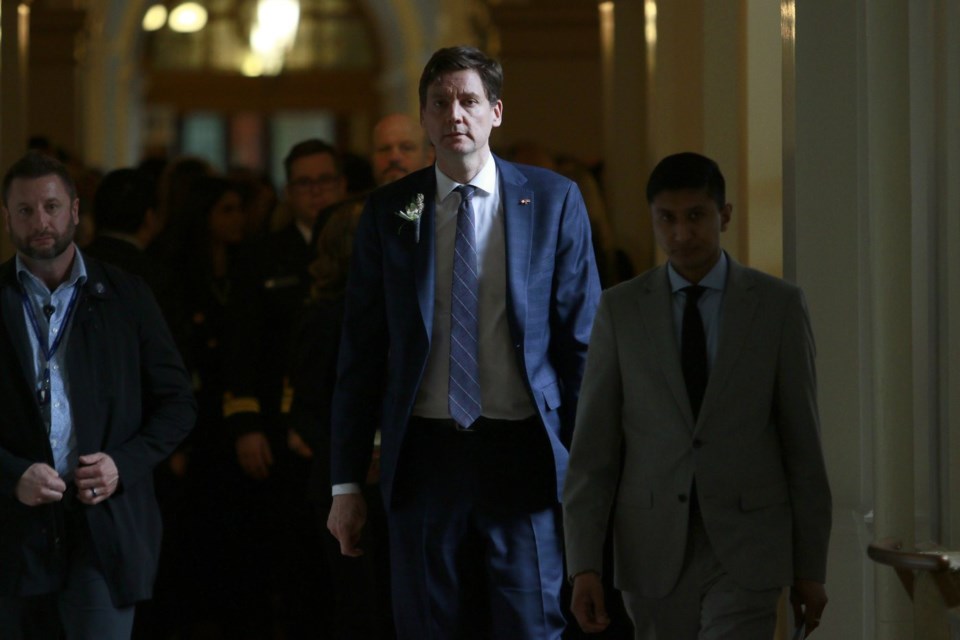U.S. President Donald Trump has served up "special, derogatory" treatment for Canada in the latest salvo in his global trade war, British Columbia Premier David Eby said.
Eby said Thursday that B.C.'s Crown corporations, ministries and health authorities have been told to cancel American contracts "wherever viable," in the province's latest move to cut reliance on goods from the United States.
He said Trump's move on Wednesday to issue a 90-day pause on much of his international tariff plan, while making no changes to the tariffs Canada faces, appears to be singling out the country and its softwood and automotive industries.
"Where's our 90-day pause? And so, the unique and special, derogatory, insulting and targeting treatment from the president is inexcusable. I don't feel that we've had favourable treatment, just the opposite," he said.
Trump temporarily reduced most steep levies on other countries, but kept in place a universal 10 per cent tariff, as well as 25 per cent duties on steel, aluminum and automobile imports to the United States.
The president did not change existing U.S. tariffs on Canada.
Eby's directive says the province should also pause participation in U.S. industry associations, cancel subscriptions to American publications and non-essential software, and avoid non-essential travel to the United States.
The premier said it will be up to each government body to decide when it's viable to make a change, but the expectation is to substitute Canadian products and services at equivalent cost wherever possible.
"I'd love to be as prescriptive as possible, but the scale and scope of the different contracts that Crown corporations and government enters into makes that almost impossible," he said.
"Ten per cent (price increase) is fine on a magazine subscription, but 10 per cent on a billion-dollar project is not. Trusting in the discretion of the people who make these decisions to be able to make those judgment calls is really important."
Eby is not the only premier to speak out about Canada being left out of Trump's 90-day pause.
On Thursday, Ontario Premier Doug Ford told CNN he was "shocked" that Canada was not included.
"We need to get through this and bring certainty back to the people of the United States and Canada, certainty to the markets," Ford said.
Eby said "instability" at the federal level, with Canada in the middle of an election campaign, has been "very unhelpful in this moment for our country" and he's glad the April 28 election is drawing nearer.
He said Prime Minster Mark Carney has taken steps to use existing programs to help people weather the fallout from the U.S. tariffs, but Canada needs a government in Parliament initiating programs that will make a difference to industries affected by the trade war and meet the needs of Canadians.
"I was very clear with the prime minister that it is vital that the money that's collected from tariffs, that are being imposed on American goods that are coming into Canada, goes back to the workers and companies that are affected by American tariffs," he said.
Eby said he has encouraged Carney to build relationships with a coalition of countries that value democracy, human rights, environmental protection and free trade.
"There are many countries that we need to be reaching out to right now to have conversations, to expand our trade, to respond to the U.S. in a co-ordinated way," he said.
"I'm encouraging (the prime minister) to do that. I was thrilled to see his comments to that effect, because I think it's the direction that we need to go."
This report by The Canadian Press was first published April 10, 2025
Ashley Joannou, The Canadian Press




